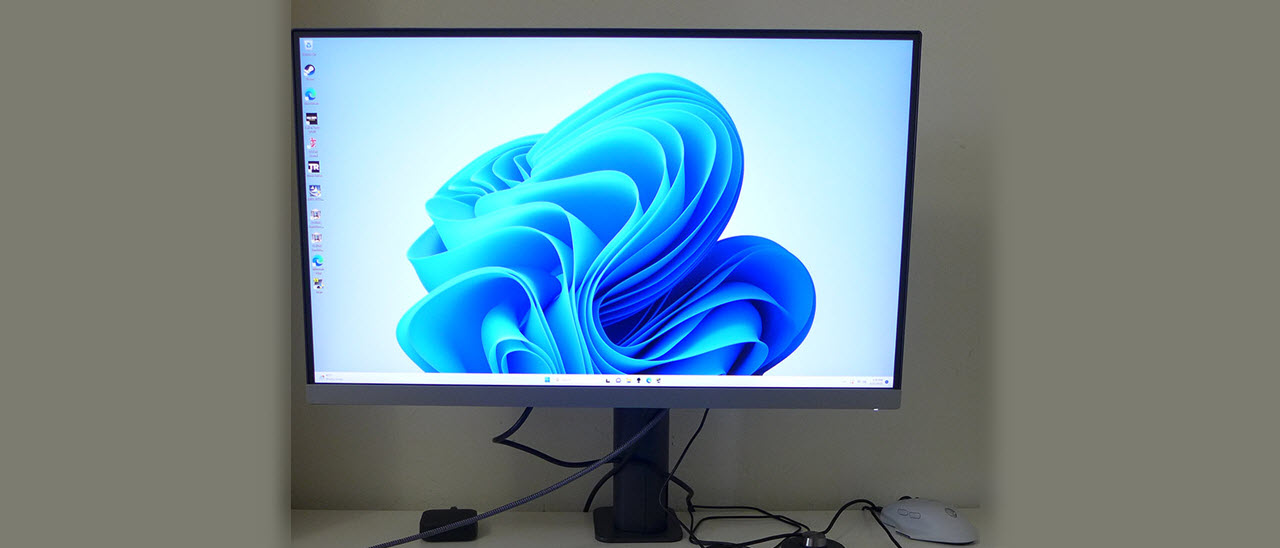Why you can trust Tom's Hardware
To read about our monitor tests in-depth, please check out Display Testing Explained: How We Test PC Monitors. We cover brightness and contrast testing on page two.
Uncalibrated – Maximum Backlight Level
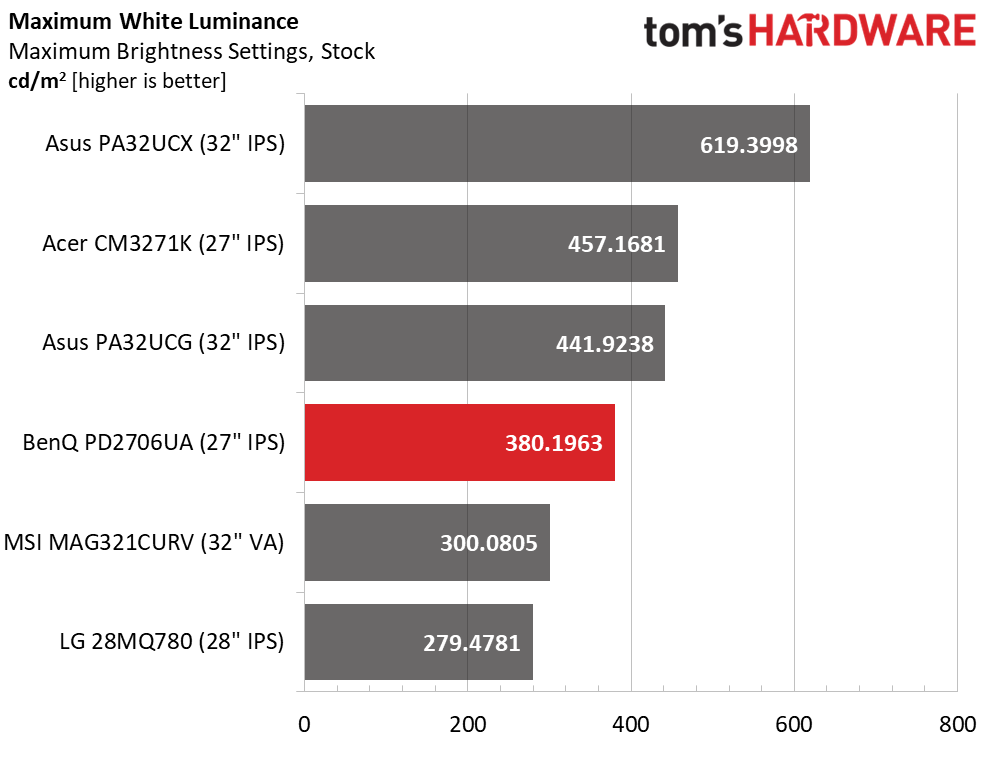
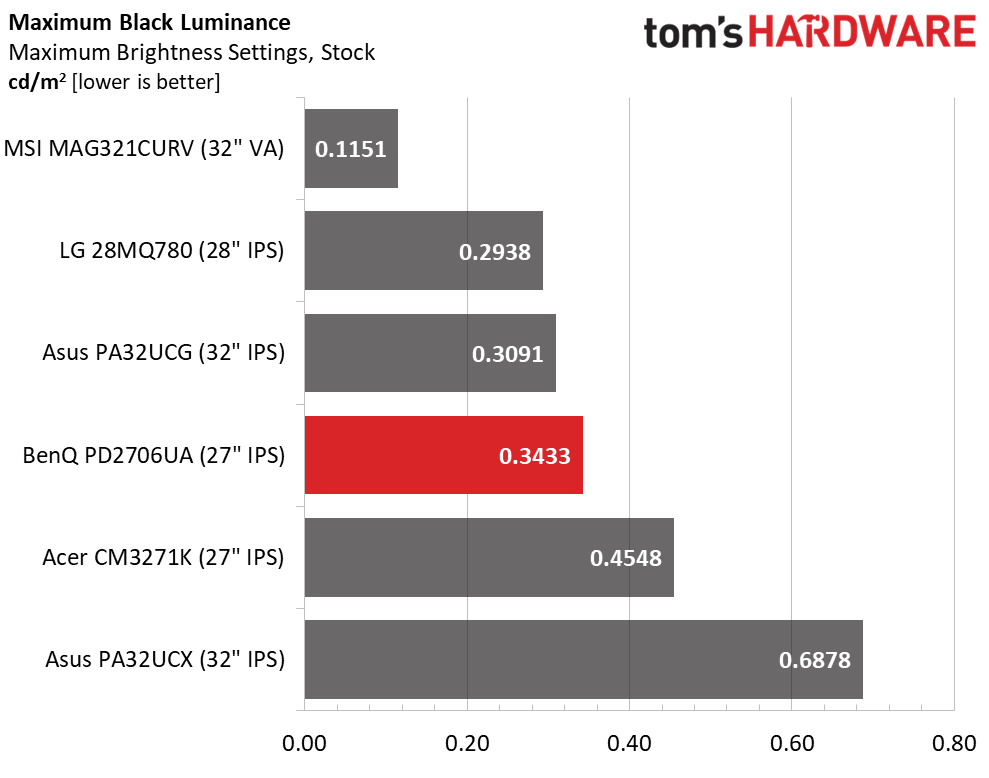
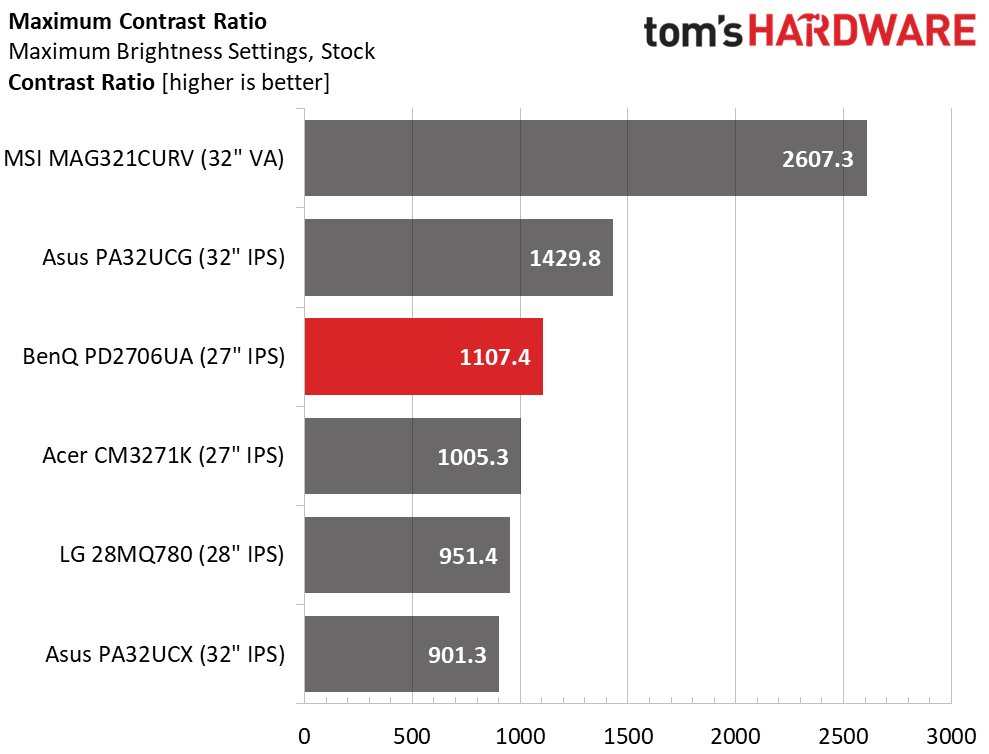
I measure monitors in their out-of-box state in the default picture mode with the brightness maxed. The PD2706UA comes with uniformity compensation engaged which reduces contrast by half so I turned that off. I also found more light output in the User Define mode, a maximum value of 380 nits. Black levels are respectable among IPS panels so I measured a native contrast ratio of 1,107.4:1. You can’t use the backlight dimming in SDR to increase contrast which is a bummer. It works fine for HDR, though, which is very good performance.
After Calibration to 200 nits
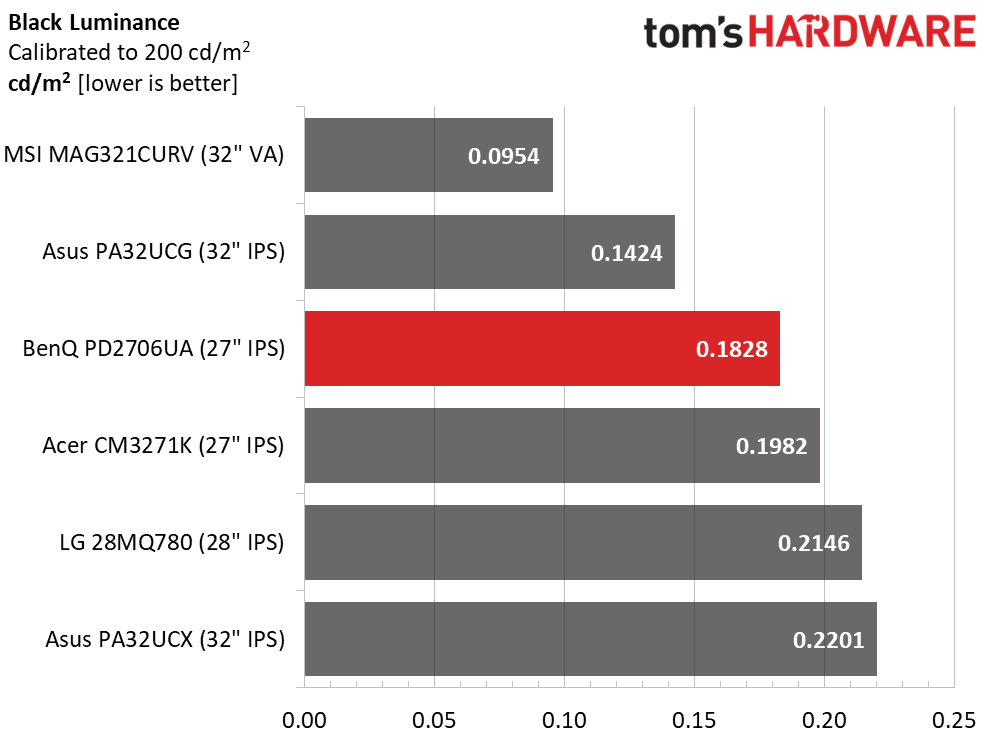
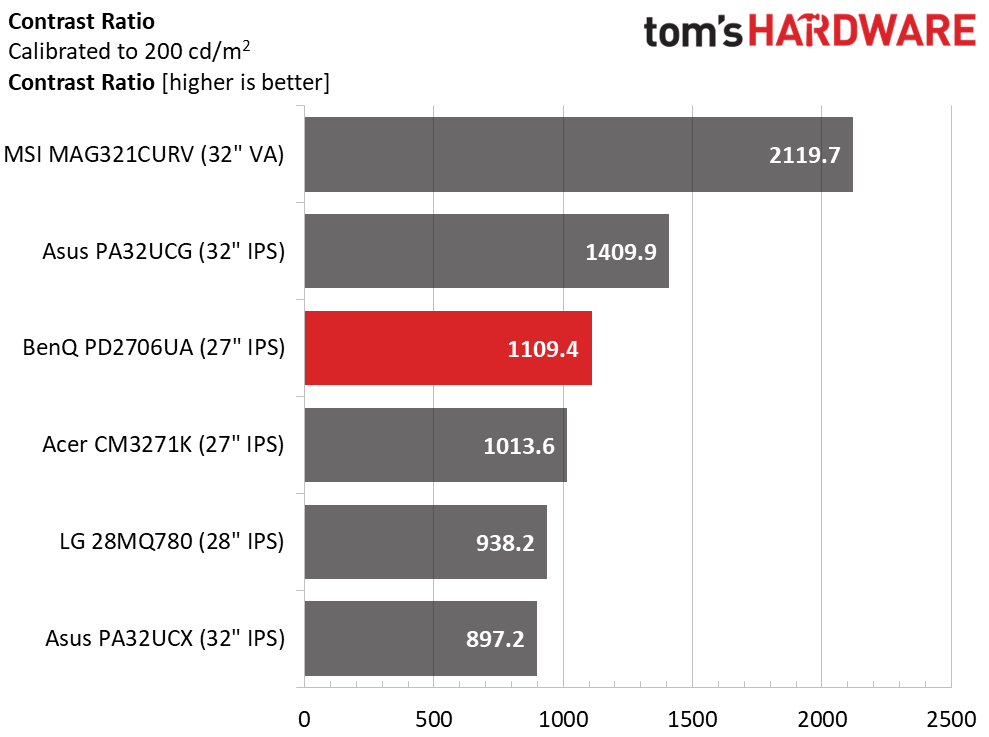
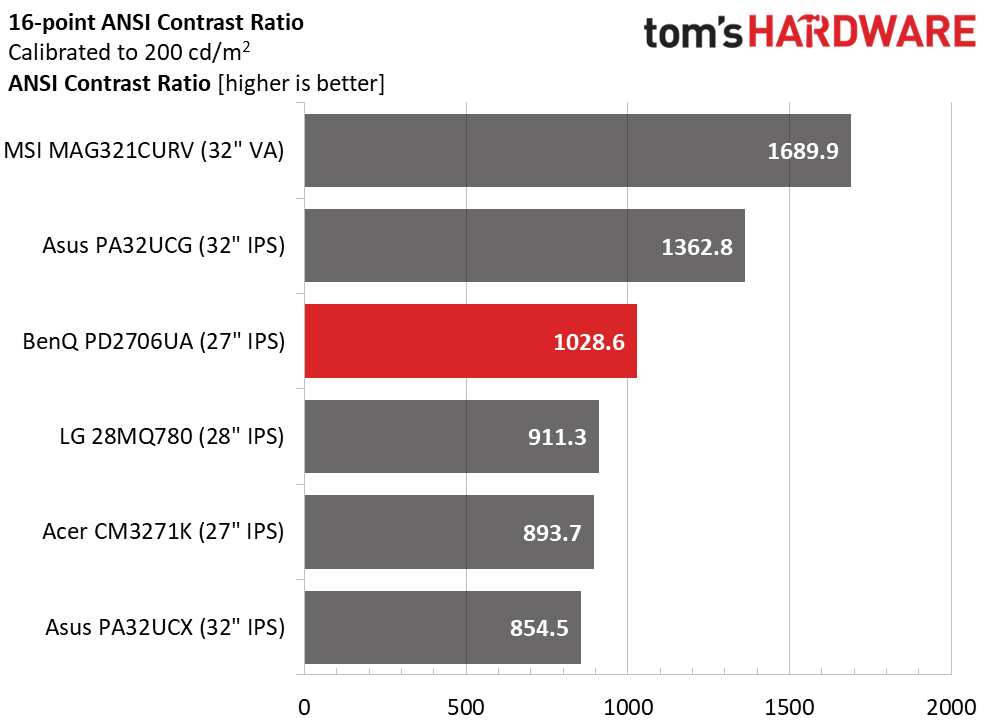
After calibration of the color temp and setting the peak white level to 200 nits, contrast is unchanged. In the IPS category, it doesn’t get much better.
The PD2706UA’s high ANSI score shows excellent quality control and component selection, particularly the screen’s grid polarizer. Intra-image contrast is deep and well delineated, especially in brighter material where extra color saturation enhances the picture.
MORE: Best Gaming Monitors
MORE: How We Test PC Monitors
MORE: How to Buy a PC Monitor: A 2022 Guide
Get Tom's Hardware's best news and in-depth reviews, straight to your inbox.
MORE: How to Choose the Best HDR Monitor
Current page: Brightness and Contrast
Prev Page Response, Input Lag, Viewing Angles and Uniformity Next Page Grayscale, Gamma and Color
Christian Eberle is a Contributing Editor for Tom's Hardware US. He's a veteran reviewer of A/V equipment, specializing in monitors. Christian began his obsession with tech when he built his first PC in 1991, a 286 running DOS 3.0 at a blazing 12MHz. In 2006, he undertook training from the Imaging Science Foundation in video calibration and testing and thus started a passion for precise imaging that persists to this day. He is also a professional musician with a degree from the New England Conservatory as a classical bassoonist which he used to good effect as a performer with the West Point Army Band from 1987 to 2013. He enjoys watching movies and listening to high-end audio in his custom-built home theater and can be seen riding trails near his home on a race-ready ICE VTX recumbent trike. Christian enjoys the endless summer in Florida where he lives with his wife and Chihuahua and plays with orchestras around the state.
-
helper800 Wow, this seems like a huge bargain at 650 dollars. The clamp / stand it come with alone is around a 100 dollar value.Reply -
mickrc3 The last 32in 4K monitors I bought near Christmas were LG models with adaptive sync and HDR and you could have easily bought 2 of them for the price of this smaller Benq 27in. Besides the word Professional there doesn't seem to be much remarkable about this monitor. Where's the value?Reply -
cmccane The only real options for serious studio creators right now are the Dell 32" 8K monitor or a 65" Samsung 8K monitor which are both several times the price of these 4K monitors. If you're running Final Cut Pro on a new Mac that supports 8K, its not an option to only be able to see 4K at one time. No doubt the clips or movies you generate will be in 4K but if you start with 8K raw video, which in itself is still a feat, you don't want a 4K monitor.Reply -
helper800 Reply
I do not believe that recording in 8k RAW is even needed, seems like a waste of time and money, but what do I know...cmccane said:The only real options for serious studio creators right now are the Dell 32" 8K monitor or a 65" Samsung 8K monitor which are both several times the price of these 4K monitors. If you're running Final Cut Pro on a new Mac that supports 8K, its not an option to only be able to see 4K at one time. No doubt the clips or movies you generate will be in 4K but if you start with 8K raw video, which in itself is still a feat, you don't want a 4K monitor.
